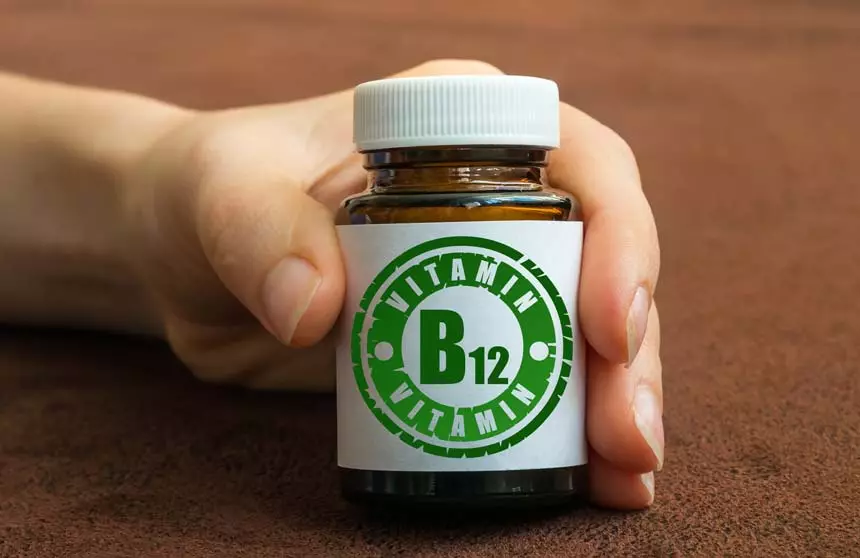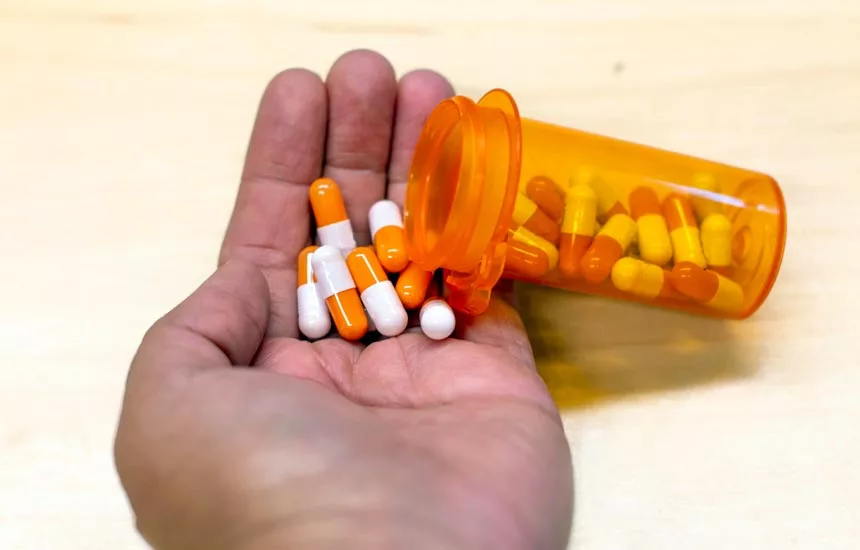What is Adderall?
Adderall is an amphetamine that belongs to a class of drugs known as stimulants. This prescription medication is most commonly used to treat Attention Deficit Hyperactivity Disorder (ADHD), as well as the sleep disorder, narcolepsy.
Currently, Adderall is classified as a Schedule II controlled substance by the Drug Enforcement Administration (DEA), meaning it has both a recognized medical purpose and a high risk for substance abuse. Once dependence has been established, Adderall withdrawal will happen, making repeated use and abuse of the drug more likely.
How is Adderall Used?
When used for medical purposes, Adderall is most commonly taken in a pill or tablet form. Its effects will generally last anywhere between 4-6 hours. The extended-release version of this drug, Adderall XR, can produce effects that carry throughout an entire day.
When being abused, however, some individuals may choose to crush and snort these tablets in order to produce a faster high, although this method is not very common. Adderall is also often combined with other substances, such as cocaine or alcohol, in order to enhance its effects.
Both this alternative method of administration and combination with other substances can produce several adverse health effects, including an increased risk of Adderall overdose. Something that, if left untreated, can cause permanent damage, including death.
Understanding Adderall Addiction
Amphetamine and dextroamphetamine are central nervous stimulants, often interacting with chemicals and nerves in the brain that control hyperactivity and impulse control. This is what makes them so effective for treating ADHD and narcolepsy.
However, when this drug use is not medically necessary, those who take Adderall will have their system flooded with large amounts of the “feel-good” chemical, Dopamine. This can affect their brain’s reward centers, creating a euphoric high and a large boost of energy.
However, this is also what makes Adderall addictive. Those who are regularly abusing Adderall will become physically dependent on this substance, as it alters their brain chemistry. Over time, they will have to continue, and likely increase their Adderall use in order to feel normal.
Who is at Risk of Adderall Abuse?

There are many reasons why someone may develop habits of substance abuse, regardless of the specific drug they are misusing. When it comes to Adderall, however, those who most commonly begin abusing this drug are young adults, including high school and college students.
This is because Adderall is popularly recognized as a “study drug,” widely believed to help boost a user’s productivity, as well as their ability to focus and retain new information. Thus, many people will begin taking Adderall as a performance-enhancing drug.
According to the National Institute on Drug Abuse (NIDA), many people with mental health conditions will also turn to drug or alcohol abuse as a means of self-medicating the difficult thoughts and feelings these can cause.
In the case of Adderall abuse, this primarily includes those struggling with eating disorders. This is because this drug can suppress a user’s appetite, allowing them to eat less without feeling hungry, and rapidly lose weight. This side effect can be extremely hazardous to their health.
Regardless of the reason why someone begins abusing Adderall, this continued use will result in the development of a dependence on this substance. One, of which, can be extremely difficult to overcome without professional addiction treatment and recovery support.
Recognizing the Signs of Drug Abuse
Addiction is a complex disease, and accepting that you or a loved one may be struggling with this condition can be difficult. However, it is absolutely necessary to do so in order to be able to properly address and overcome these habits of drug abuse.

There are several signs that may suggest that someone is abusing Adderall, including:
- Spending large amounts of time or money acquiring, using, or recovering from the effects of Adderall.
- Wanting to stop or reduce Adderall, but being unable to do so by oneself.
- Continues to abuse Adderall despite this causing issues at home, work, school, or within relationships.
- Neglecting previously enjoyable activities, hobbies, or relationships in order to continue using Adderall.
- Need to take Adderall in higher or more frequent doses in order to achieve the desired effect.
In addition to those listed above, one of the biggest signs that someone has an Adderall addiction is if they are experiencing withdrawal symptoms when attempting to reduce or stop taking the drug.
What is Stimulant Withdrawal?
Once they have formed an amphetamine addiction, Adderall users will not be able to drastically reduce or completely stop their usage of it without experiencing a number of uncomfortable side effects.
These Adderall withdrawal symptoms can be both psychological and physical when attempting to overcome an Adderall dependence. This period often encourages reward-seeking behavior, making individuals want to continue their drug use to prevent these symptoms from occurring.
Because of how difficult this withdrawal period can be, it is strongly recommended to seek out professional addiction treatment options that can help manage these symptoms and reduce a recovering individual’s risk of relapse.
Common Symptoms of Adderall Withdrawal
Everyone’s experience with amphetamine withdrawal will differ based on their specific drug addiction and overall health. However, there are several common withdrawal symptoms associated with Adderall withdrawal, including both psychological and physical side effects.
Psychological Symptoms of Adderall Withdrawal

Adderall is a stimulant of the central nervous system, which means it affects the way the user’s brain works. Specifically, it introduces much larger amounts of dopamine into it. This is often why people develop habits of Adderall abuse. They love the feeling of euphoria that it provides.
However, this is also what makes breaking an addiction to Adderall so difficult, as this often can cause major changes to a person’s personality. Typical behavioral and psychological symptoms of withdrawal include:
- Agitation
- Anxiety
- Moderate to severe depression
- Irritability
- Mental fog
- Panic attacks
- Phobic thoughts
- Stress
- Mood swings
Some people may even develop suicidal thoughts due to the intense depression and anxiety that may result during withdrawal from Adderall. This is something that will need to be treated seriously by talking with a mental health professional right away.
Suicidal thoughts may be more common amongst those who were struggling with mental illness before their stimulant abuse began. This is why, according to the Substance Abuse and Mental Health Services Administration (SAMSHA), therapy is essential to effective addiction treatment.
Physical Symptoms of Adderall Withdrawal
When it comes to physical Adderall withdrawal symptoms, while not necessarily life-threatening, these can be incredibly difficult to manage by oneself. For some, doing so may even feel impossible, especially if psychological withdrawal symptoms are also present.
Some of the physical side effects that may occur during withdrawal from Adderall include:
- Extreme fatigue
- Body aches
- Nausea and vomiting
- Stomach pain and cramping
- Abnormal blood pressure
- Intense drug cravings
In some cases, amphetamine withdrawal symptoms may cause an individual to feel or appear intoxicated. This typically occurs amongst those who were taking Adderall without a need for it, or outside of their prescription guidelines.
Other Symptoms of Adderall Withdrawal
Many people have been prescribed Adderall because of narcolepsy. This is because the mixture of methamphetamine and dextromethamphetamine can help them stay awake during the day when their condition tries to force them into sleep.
Unfortunately, this is also one of the most common symptoms that occur during withdrawal from Adderall. The same combination of drugs in Adderall that keeps narcoleptics up can have a long-term effect on anyone who abuses the medication.
They will most likely have trouble sleeping, often being unable to fall asleep, or experiencing sleep disturbances that continuously wake them up throughout the night. In these cases, they may be given a long-acting benzodiazepine during treatment.
However, while these drugs can act as sleep aids, they present their own risk for substance abuse. This means they will likely be strictly monitored when being administered, and will only be given to a recovering individual for a brief, rather than an extended, period of time.
Some people actually experience the exact opposite of this problem, though. After quitting Adderall, many people may suddenly fall into a deep sleep that can last for much longer than they normally would.
This can significantly decrease their productivity levels, and may further exacerbate mental symptoms, such as depression, anxiety, and mood swings as a result of their irregular sleeping cycle.
How Long Do Adderall Withdrawal Symptoms Last?
Because addiction is such a personal disease, there is no definitive timeline for how long someone’s Adderall withdrawal symptoms will last. This can vary based on a number of factors, including how much and how often a person was taking this drug.
Generally speaking, however, Adderall withdrawal symptoms will usually begin to develop within a few hours after their last dose, as the drug’s effects begin to wear off. For those who were abusing Adderall XR, it may take up to a day to begin developing symptoms of withdrawal.
Once this period begins, a person’s withdrawal process may last anywhere between a few days and a few weeks after taking their last dose, depending on the severity of their Adderall addiction.
Because of the uncertainty of how long and intense the withdrawal process can be, it is never recommended to try overcoming this addiction on one’s own. Seeking out professional addiction treatment services greatly increases a person’s chances of achieving and maintaining sobriety.
Professional Treatment Options For Managing Adderall Withdrawal

There are several addiction treatment programs available to those struggling with Adderall addiction today. While each individual will vary in what specific recovery approach will best work for them, this treatment process will usually begin with participating in a medical detox program.
Once this has been completed, many individuals will continue to receive care through an inpatient or outpatient rehab center. This may also involve their participation in various mental health services, including:
- Individual therapy
- Group therapy
- Family therapy
- Behavioral therapy services
- Motivational Interviewing
- Recovery support groups
Treatment facilities that offer individualized and integrated recovery services will offer their clients the greatest likelihood of getting and staying sober.
Speaking with your healthcare provider or an addiction specialist, such as a Find Addiction Rehabs representative, can help you narrow down what options will best serve your specific treatment needs.
Understanding the Medical Detox Process
Because the withdrawal periods of several substances can be a huge challenge for recovering individuals, many drug rehab programs will incorporate medical detox into their addiction recovery approach.
This treatment process will allow an individual to be gradually weaned off of an abused substance while under the constant supervision of a medical professional. This can help manage and even prevent withdrawal symptoms, and reduce drug cravings.
In the case of Adderall detox, this regular medical supervision can allow those overcoming this form of substance abuse to receive critical physical and emotional support during the first stages of their recovery process.
This level of care may also include the administration of certain addiction medications, which can further reduce Adderall cravings and withdrawal symptoms that may occur during the Adderall detox process.
Additional Tips for Easing the Adderall Withdrawal Process

There are several other ways of managing Adderall withdrawal that can help ease this process. This includes finding holistic ways of managing difficult withdrawal symptoms, preferably in addition to receiving more professional and clinical treatment.
Furthermore, while it may not be possible to completely prevent temptation during this process, following these tips can help you to avoid succumbing to your cravings and relapsing after going on an Adderall binge.
Take Supplements
Because of the effects Adderall can have on your metabolism and appetite, many individuals will experience nutritional and chemical deficiencies when abusing this substance. Adjusting to life without Adderall will be much easier by supplementing with the following:
- 5-HTP is the precursor for serotonin, which can help counter the drop of dopamine people experience during Adderall withdrawal.
- L-Theanine can help ease anxiety, relieve insomnia, and promote calmness.
- Magnesium blocks glutamate receptors in the brain, which will decrease neuronal hyperexcitability.
- Vitamin B12 can improve cognition during the brain fog that occurs because of Adderall withdrawal.
- Vitamin D may help protect the brain against amphetamine neurotoxicity.
One of the most common Adderall withdrawal remedies is to take plenty of vitamin C and drink cranberry juice. The latter will acidify the user’s urine and help cleanse their bodies of the drug, while vitamin C can cross the blood-brain barrier and defend the brain against oxidative stress.
2. Drink Lots of Water
Dehydration may set in during Adderall withdrawal, making it important to drink lots of water. This can be beneficial in several ways, the most important of which is keeping an individual properly hydrated during recovery.
Proper hydration is essential for a person’s physical and emotional well-being at all times; when recovering from a condition as difficult on the body as addiction, this is even more necessary. Furthermore, consuming more liquids can help the system better flush out toxic substances.
3. Engage in Healthy Activities

Sticking to a healthy diet that is low in carbohydrates may help reduce some of the lethargy that occurs when breaking an Adderall addiction. Though it may be very difficult to do at first, regular exercise can also go a long way toward helping both the body and the mind during this time.
4. Seek Emotional Support
Receiving the right emotional care is just as essential to a smooth recovery as having physical support. You may be able to find this assistance through a therapist or counselor, or by speaking with trusted family members and friends.
Find the Right Adderall Addiction Treatment Options Now
Withdrawing from Adderall can be a long and difficult process, but you do not have to go through this alone. If you or a loved one is struggling with addiction, our team at Find Addiction Rehabs will help you find treatment centers that can provide all of your recovery needs.
Our hotline is available 24/7 to connect you with addiction treatment services and recovery resources, anytime you need them. So make the right choice and call now, and we will help you take the proper step to overcome your addiction and achieve long-term sobriety, today!


